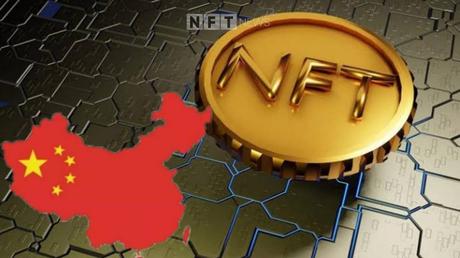
China’s copyright office said on Friday that it will do more to stop concerns about infringement with non-fungible tokens (NFTs). This comes as some investors in China try to make money off of the trend, even though regulators are paying more attention to it and public interest is falling.
In a declaration, the National Copyright Administration (NCA) said that it will go after people who break the law by minting NFTs or digital collectibles based on the work of other people without their permission.
The NCA says that this kind of work can be art, cartoons, music, video games, movies, and TV shows.
This is part of a two-month campaign to stop copyright infringement that was started by the NCA, the Ministry of Industry and Information Technology, the Public Security Bureau, and the Chinese Cyberspace Administration.
The NCA says that the project also deals with issues of copyright in other areas, such as short films and online publications.
NFTs got a lot of attention in China after they became popular around the world last year. In the country, virtual assets are sometimes called “digital collectibles” to distance them from cryptocurrencies, which have been banned from trading since last year after a long crackdown.
Most Chinese platforms price digital collectibles in yuan instead of cryptocurrency. This is because regulators have warned about the risks of speculation in the NFT industry. Most of the time, secondary trade is also not allowed.
Still, some Chinese buyers have been able to trade digital treasures on sites that are not allowed. Concerns about scams, thefts, and copyright violations are common in the mostly unregulated NFT sector around the world, and they are also common in China.
In January of this year, a court in the city of Hangzhou in eastern China made the country’s first important ruling on an NFT copyrights case.
The court said that the marketplace NFTCN should be held responsible for letting a cartoon image be sold without the creator’s permission. This went against the artist’s “right to distribute works over information networks.”
After the first frenzy last year, many Chinese companies have already cut back on their NFT activities because the government isn’t sure how to handle them and the public isn’t as interested.
Last month, Tencent Holdings said that its NFT platform Huanhe will stop selling digital collectibles to the public so that it can “focus on its main strategy.”
But there are still people who are interested in the field. Before this year’s Mid-Autumn Festival, some “digital mooncakes” were selling for more than 10,000 yuan (US$11,300), according to Chinese media.
Leave this field empty if you're human: